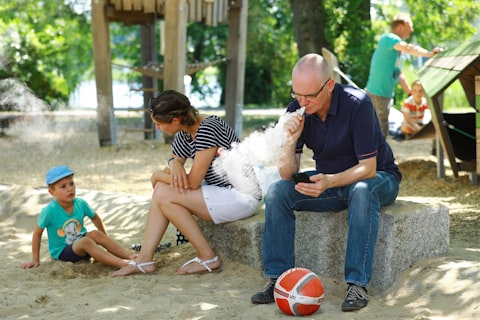The Indispensable Role of Mothers in the Family: Nurturing, Guidance, and Unconditional Love
Motherhood is a profound and multifaceted journey that encompasses
love, nurturing, and the shaping of future generations. This article
delves into the indispensable role of mothers in the family, exploring
the essential aspects of their influence in nurturing, guiding, and
fostering the well-being of their children and the family unit.
Embracing the Heart of the Family
Mothers serve as the heart of the family, providing love, compassion,
and unwavering support that forms the foundation of a nurturing and
harmonious home environment.
- Unconditional Love: Mothers offer boundless love and emotional support, creating a sense of security and warmth within the family.
- Emotional Anchor: Their nurturing presence fosters a sense of stability and comfort for every family member.
Nurturing and Guidance
Mothers play a pivotal role in nurturing and guiding their children,
instilling values, and providing the emotional support necessary for
their holistic development.
- Emotional Intelligence: Mothers nurture their children's emotional intelligence, teaching them empathy, resilience, and self-awareness.
- Moral Compass: They guide their children's moral and ethical development, instilling principles of kindness, integrity, and compassion.
Balancing Care and Responsibility
Mothers adeptly balance care and responsibility, managing the diverse
needs of the family while providing a nurturing and supportive
environment for their children.
- Caregiving: They attend to the physical, emotional, and psychological needs of their children, ensuring their well-being and growth.
- Household Management: Mothers often manage the day-to-day responsibilities of the household, ensuring a harmonious and organized family life.
Fostering a Sense of Security and Belonging
Mothers create a nurturing and secure environment that fosters a
sense of belonging and emotional well-being for every family member.
- Creating Bonds: They cultivate strong family bonds, fostering a sense of unity, trust, and support within the family.
- Emotional Support: Mothers provide a safe space for
their children to express themselves, seek guidance, and find solace
during challenging times.
Empowering and Inspiring
Mothers empower and inspire their children, nurturing their talents,
fostering their aspirations, and instilling confidence in their
abilities.
- Encouraging Growth: They support their children's dreams and aspirations, providing encouragement and guidance to help them achieve their goals.
- Role Modeling: Mothers serve as role models, inspiring their children through their strength, resilience, and determination.
Navigating Challenges and Celebrating Triumphs
Mothers stand as pillars of strength, guiding their family through
challenges, and celebrating their triumphs with unwavering pride and
support.
- Resilience and Support: They offer unwavering support during difficult times, teaching their children resilience and the importance of perseverance.
- Celebrating Achievements: Mothers take pride in their family's accomplishments, nurturing a sense of confidence and self-worth in their children.
Conclusion: The Enduring Influence of Mothers
The role of mothers in the family is one of profound influence,
nurturing, and guidance. Their unwavering love, compassion, and
dedication form the cornerstone of a harmonious and nurturing family
environment, shaping the future generation and fostering a sense of
love, empathy, and resilience within the family unit.
In conclusion, the role of mothers in the family is one of profound
influence, nurturing, and guidance. Their unwavering love, compassion,
and dedication form the cornerstone of a harmonious and nurturing family
environment, shaping the future generation and fostering a sense of
love, empathy, and resilience within the family unit.




